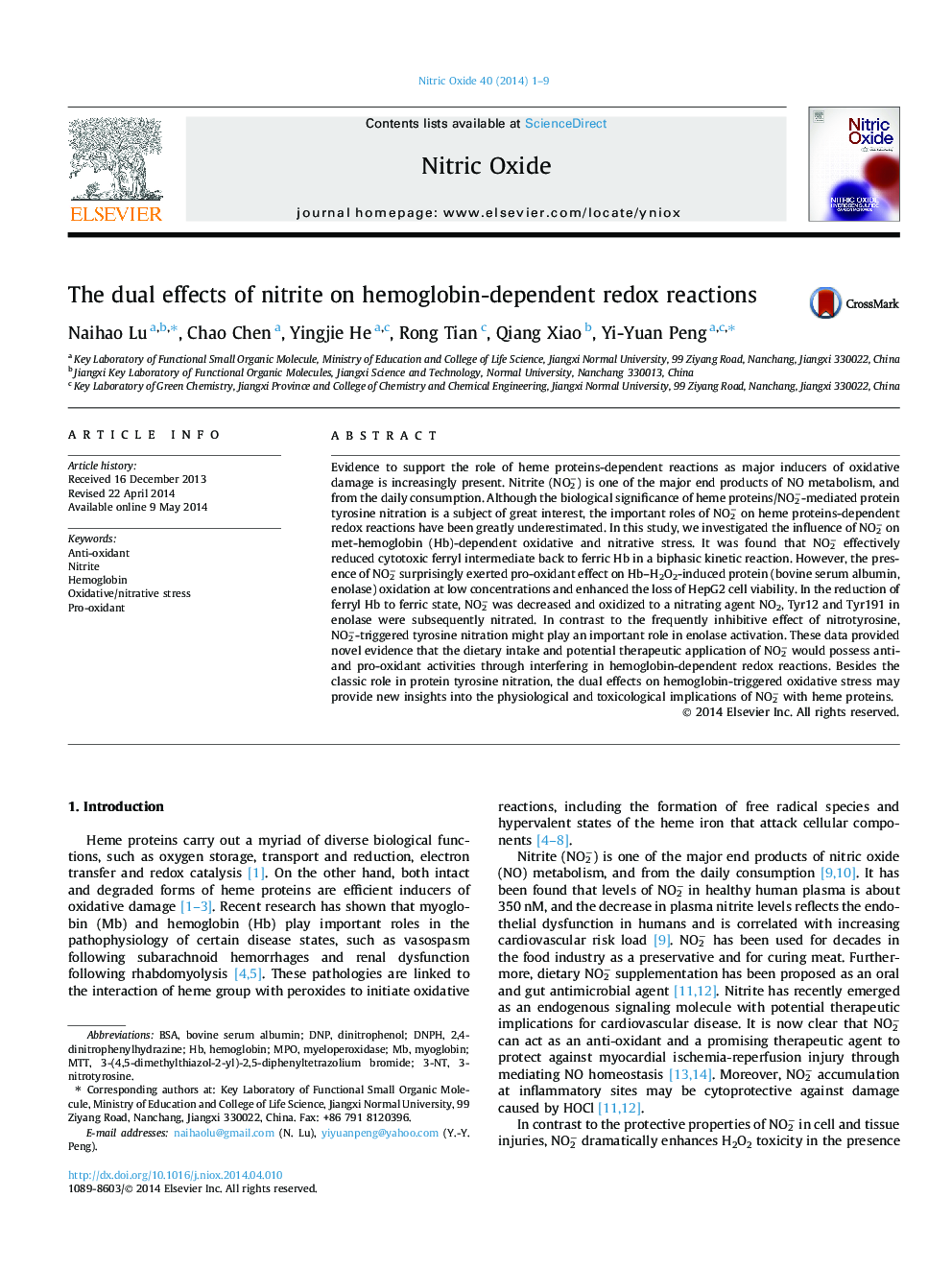| Article ID | Journal | Published Year | Pages | File Type |
|---|---|---|---|---|
| 2000653 | Nitric Oxide | 2014 | 9 Pages |
•NO2− acted as a reducing agent to remove ferryl hemoglobin.•NO2− exerted pro-oxidant effect on Hb–H2O2-induced protein oxidation at lower concentrations.•NO2− effectively enhanced Hb–H2O2-induced loss of HepG2 cell viability.•NO2−-triggered tyrosine nitration may play an important role in enolase activation.
Evidence to support the role of heme proteins-dependent reactions as major inducers of oxidative damage is increasingly present. Nitrite (NO2−) is one of the major end products of NO metabolism, and from the daily consumption. Although the biological significance of heme proteins/NO2−-mediated protein tyrosine nitration is a subject of great interest, the important roles of NO2− on heme proteins-dependent redox reactions have been greatly underestimated. In this study, we investigated the influence of NO2− on met-hemoglobin (Hb)-dependent oxidative and nitrative stress. It was found that NO2− effectively reduced cytotoxic ferryl intermediate back to ferric Hb in a biphasic kinetic reaction. However, the presence of NO2− surprisingly exerted pro-oxidant effect on Hb–H2O2-induced protein (bovine serum albumin, enolase) oxidation at low concentrations and enhanced the loss of HepG2 cell viability. In the reduction of ferryl Hb to ferric state, NO2− was decreased and oxidized to a nitrating agent NO2, Tyr12 and Tyr191 in enolase were subsequently nitrated. In contrast to the frequently inhibitive effect of nitrotyrosine, NO2−-triggered tyrosine nitration might play an important role in enolase activation. These data provided novel evidence that the dietary intake and potential therapeutic application of NO2− would possess anti- and pro-oxidant activities through interfering in hemoglobin-dependent redox reactions. Besides the classic role in protein tyrosine nitration, the dual effects on hemoglobin-triggered oxidative stress may provide new insights into the physiological and toxicological implications of NO2− with heme proteins.
